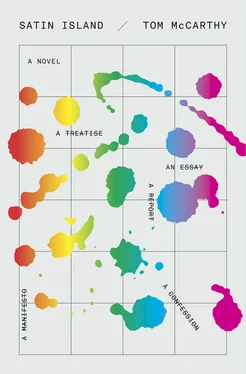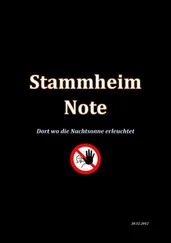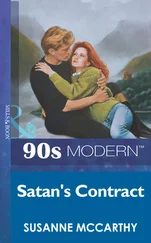7.8Bronisław Malinowski, the father of modern anthropology, said: Write Everything Down. That was his First Commandment. You never know (he reasoned) what will turn out to be important and what won’t; so capture it all, turn it all into data. I used to adhere devoutly to this commandment: as a student, during my clubbing-book research phase, and onwards. I’d keep field-notes which I’d type up in the evening, or first thing in the morning after each night-before: detailed accounts of even — especially — the preceding day’s most trivial encounters; impressions of the people and locations these involved; first-pass appraisals of the hue and undertone of situations. When Peyman, with his visionary vagueness, handed me my epic, my epochal, commission, this Great Report, the sense that anything might end up forming part of this made everything I came across, every event I lived through, glow and buzz with potential even more. Paradoxically, though, at the same time, the writing-down, the field-note-taking, tapered off. This wasn’t due to lack of commitment — far from it. It was a consequence of Peyman’s way of thinking. He didn’t, it was quite clear, want a standard ethnographic paper that would sit gathering dust, or cyber-dust, alongside others: he wanted something different and surprising; something bigger, more ambitious and, above all, new . It will find its shape, he’d said; I leave all that to you. This was the exciting part: this remit to leave all established ethnographic protocol behind, to go off-road, off-map, as radical and left-field as I wanted. Anything went. What if …? What if, rather than it finding its shape, the age itself, in all its shape-shifting and multi-channeled incarnations, were to find and mold it ? What if the age, the era, were to do this from so close up, and with such immediacy and force, that the it would all but vanish, leaving just world-shape, era-mold? I started to think thoughts like this. They excited me. Beneath their vagueness, I felt something forming — something important and beautiful and momentous.
7.9One evening, a few months after I’d joined the Company, and about half a year before we won the Project contract, I found myself, still in the throes of these thoughts, drinking with a woman in a bar — a random stranger with whom I’d struck up a conversation. At some point, I stopped listening to what she was saying to me and looked instead at the objects she had placed around her: a cigarette pack, a plastic lighter, a dog-eared travelcard and a key-fob, fanned out in a rough semicircle across the zinc counter, like a spread of cards. She was, like many single women in her situation, using these objects to create a buffer zone around herself, in which her lifestyle, personality and, not least, availability were simultaneously signaled and withheld. I’d bought her a fresh drink; beer-froth was brimming over her glass’s rim and running down onto the counter, where it streaked in rivulets between the objects, linking them together as it sogged their edges. Where previously I would have made a mental note of all these objects and then, à la Malinowski, written them down later so that each of them could, when analyzed, yield its semantic content (the key-fob had a picture of some elaborately hairstyled space-princess on it, a pre- or proto-Leian heroine dating right back to the days of silent cinema), now I simply looked at them, blurring my vision till my own gaze became soggy and I lost myself among them.
7.10And as I did, I felt a fragile, almost epiphanic tingling of what-if- ness come across me. What if …? What if just coexisting with these objects and this person, letting my own edges run among them, occupying this moment, or, more to the point, allowing it to occupy me , to blot and soak me up, rather than treating it as feed-data for a later stock-taking — what if all this, maybe, was part of the Great Report? What if the Report might somehow, in some way, be lived, be be -d, rather than written? I didn’t go home with this girl, this frothy, streaky, princess-in-a-galaxy-far-away woman, and in fact never saw her again — but that didn’t matter. Fulgurate , Peyman had said. As I drank with her, and as I left the bar, and over the next days, and weeks, a new field, a new realm, a whole new Order of anthropological experience seemed to burst open and fulgurate before me, its pieces glittering and dancing madly as they started to take up positions within what I suspected might, one day, turn out to be a stable and coherent pattern — an Order of which I, not Malinowski, would be founding father. What if …? In my reverie, I saw a future where, with my name echoing inside their heads, ethnographers— U-thnographers! — no longer scrolling through dead entrails of events hoping to unpack the meaning of their gestures, would instead place themselves inside events and situations as they unfolded —naïvely, blithely and, most of all, live —their participation-from-within transforming life by bringing its true substance to the fore at every instant, in the instant, not as future knowledge but as the instant itself, which, like a ripened pod, would overswell its bounds and rupture, spawning meaning, spreading it forth to all corners of the world … Then the Great Report would not be something that was either to-come or completed, in-the-past: it would be all now. Present-tense anthropology; anthropology as way-of-life. That was it: Present-Tense Anthropology™; an anthropology that bathed in presence, and in now ness — bathed in it as in a deep, bubbling and nymph-saturated well.
7.11And yet … And yet … And yet. The Great Report still had to be composed. That was the deal: with Peyman, with the age. Even if it wasn’t composed in a way that conformed to any previous anthropological model, it nonetheless had, somehow, to find a form. It was all a question of form. What fluid, morphing hybrid could I come up with to be equal to that task? What medium, or media, would it inhabit? Would it tell a story? If so, how, and about what, or whom? If not, how would it all congeal, around what cohere? How could I elevate the photos I had pinned about my walls, the sketches, doodles, musings, all the stuff cached on my hard-drive, the audio-files and diaries not my own — how could I elevate all these from secondary sources to be quantified, sucked dry, then cast away, to primary players in this story, or non-story? Above and beyond this, how could life as lived become transmogrified from field-work into work, the Work? Here my thinking, I’ll admit, got vague even by Peyman’s standards. What if …? I imagined cells of clandestine new-ethnographic operators doing strange things in deliberate, strategic ways, like those conceptual artists from the sixties who made careers out of following strangers around for hours on end or triggering unusual events, specific situations (fainting, or rather pretending to, or simply lying down, in a busy street, say, or staging a quarrel in a café)… Could that kind of stuff, that kind of practice, be applied to modern life? And then, as Present-Tense Anthropology™, could it be somehow passed on, communicated to (or even replicated by) collaborators who might, through the very act of recognizing it, cause it to be simultaneously registered, logged, archived … Could that be it …? How would it work …? I tried to picture cells, “chapters” of new-ethnographic agents, like you get with biker-gangs and spies, each of them primed, initiated, privy to a set of protocols and gestures, that a tacit call to order might activate, and re-activate time and again … And then the rituals and ceremonies that ensued — might that be the Report …? Would this new Order then, like a cult gestating in the catacombs of some great city it will one day come to dominate, pulsate and grow with each one of these covert iterations — until, eventually, it might, yes, fulgurate: erupt, break cover, soar upwards and, in the light of full, unhindered proclamation, found its Church? Then the world would be made over; there’d be jubilation, exaltation: I saw Nobel Prize dinners and tickertape parades and general dancing in the streets. But still — here was the catch; here, every time, even my wildest fantasies, with their champagne and bunting and confetti, came back full circle to their sober starting point — for all that to come to pass, for that whole sequence to be set in motion, the Great Report had first, somehow, to come into being.
Читать дальше












